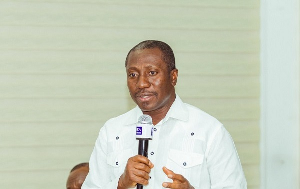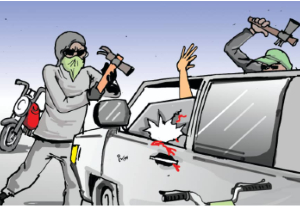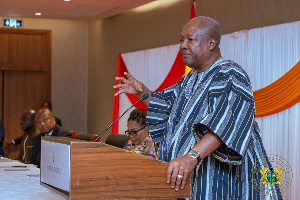The Finder can report that the expectation of the National Democratic Congress (NDC) widening its Electoral College to reduce or eliminate inducement of delegates with money has woefully failed to achieve the desired results in the party’s strongholds.
The move has rather increased the financial burden on parliamentary aspirants in the November 21, 2016 primaries in constituencies considered as safe seats of the party.
Before the expansion of the Electoral College, aspirants met delegates in groups and on individual basis, where the aspirant delivered his or her messages and offered delegates inducements such as cash, mobile phones, cloths, roofing sheets and bags of cement, to mention a few.
This time around, huge billboards, which were not a feature in parliamentary primaries in the past, have sprung up, especially in the party’s strongholds.
Volta, Northern, Upper East, Upper West regions, and parts of Greater Accra are awash with huge billboards of aspirants.
Despite the fact that these billboards cost a lot of money to erect, they can be seen in their numbers in the various safe constituencies.
The expansion of the party’s Electoral College has forced aspirants to erect several billboards across constituencies to make them visible since all card-holding members of the party are eligible to vote.
In addition, aspirants now organise rallies in various communities in their constituencies, which also involves a lot of money.
Some aspirants are enticing NDC members with cash to attend their rallies to demonstrate that they are the popular and best candidate for the constituency.
The Finder’s investigations revealed that, for now, some aspirants give not less than GH?20 to each individual to attend their rallies, in addition to free transport to rally grounds, free T-shirts and free food.
Some aspirants are offering registered members who qualify to vote mobile phones and full piece of cloth with promises to give each person as much as GH?500 before election day.
Incumbent Members of Parliament (MPs) who are seeking re-election have gone a step further by emptying their Common Fund accounts to undertake development projects.
Six classroom blocks have been completed in three months, feeder roads are being upgraded, defective bulbs in street lights are being replaced, among other development projects.
Aside cash and other inducements, some aspirants are also making unrealistic promises to woo voters.
Voters have been conditioned by politicians to take money, cooking utensils, TV sets, etc. before they vote.
Money-sharing and vote-buying have made Ghana’s democracy very expensive.
This trend is worrying and a threat to Ghana’s democracy.
General News of Wednesday, 18 November 2015
Source: tv3network.com













